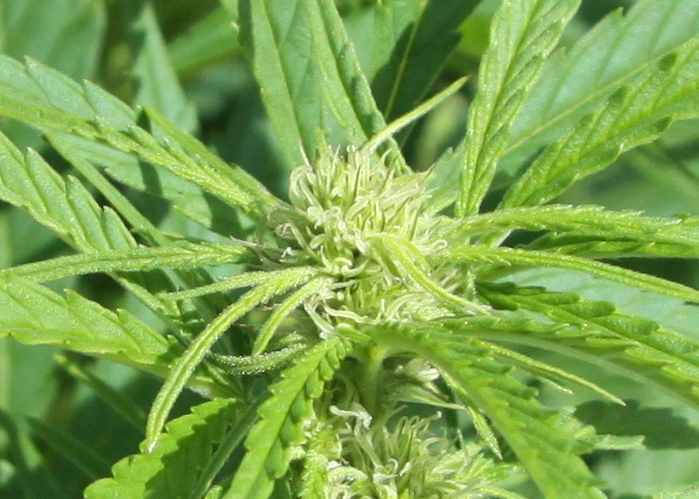
As our state and country face an unprecedented crisis, Governor Cuomo and New York State legislators rightfully decided to streamline the budget, leaving the legalization and regulation of recreational cannabis to be fought for another day.
We now have more time, and New York State policymakers would be wise to use this time as an opportunity to learn from the failures of states across the country to address the disproportionate impact that cannabis criminalization has had on people of color and use legalization to create meaningful economic opportunities for African-American communities. If done thoughtfully, New York has an opportunity to address these failures, and to set a new standard for states to address longstanding injustice and inequity, build African-American wealth, and create jobs for those who have been marginalized.
To be clear, the criminalization of cannabis has disproportionately led to the incarceration of people of color and has created lasting harm to those individuals, their families, and to entire communities. To some degree, every state that has legalized recreational cannabis has recognized that legalization and the creation of a regulated market should also be an opportunity to address this historic injustice.
Yet standard approaches have failed to realize the potential of this moment.
Massachusetts was the first state to explicitly include “social justice” considerations in its legislation, but after 14 months not a single store has opened that is owned by non-white owners, and a number of applicants for “social justice” permits are structured so that profit accrues to white-owned financial partners outside the state. Similarly, in Chicago, a city that is more than 50% non-white, not a single one of the first round of retail licenses was granted to a firm with non-white representation in its ownership.
In too many states the opportunity for cannabis legalization to be reparative has instead supported those who already have access to capital and opportunity. It does not need to be this way. It is possible to do better, and New York can lead the way in restructuring cannabis from an extractive industry to a restorative industry for non-white communities, including African-American communities.
First, justice should start with expunging arrest records so that those who were harmed by criminalization can benefit from legalization and aren’t automatically disqualified. In Illinois, approximately 11,000 low-level offenders were pardoned as of December 31, 2019, ensuring that legalization would start with tangible benefits for impacted individuals.
New York’s proposed legislation follows a similar approach, in which arrests and minor convictions would be pardoned or expunged. Beyond the right to justice in their lives, these individuals are uniquely positioned to capture the wealth created by a change in policy.
Secondly, regulations must be designed to protect the revenue generated by cannabis. Legalization and regulation of growing, processing, distributing, and selling cannabis is expected to generate substantial public revenues through fees, taxes, and other mechanisms.
These programs are too new for a detailed evaluation, but early signs are complicated. In California, tax revenue has lagged far below expectations, in part because regulation of the legal market has made cannabis more expensive and less convenient than that available in the unregulated legacy market.
Even more, new tax revenues must be directed to locally-controlled sources, where investments can address long-standing damage from drug criminalization. These funds cannot be redirected toward other priorities, which is often the default approach.
 CityViews are readers’ opinions, not those of City Limits. Add your voice today!
CityViews are readers’ opinions, not those of City Limits. Add your voice today!
Recent drafts of legislation in New York suggest that 25% of new tax revenues from cannabis will be dedicated to funding health and criminal justice measures and an additional 50% to local economic development measures. This is a good start.
However, this funding is allocated to governor-controlled entities outside of the standard legislative process. It is not clear how the funding will be spent, how much input communities will have in directing spending, how spending will be protected from “raids” when budget deficits loom, and how the impact of spending can be monitored.
Finally, regulators must develop plans for cannabis businesses to establish new models of community investment and wealth building. Through deliberate program design and management, cannabis legalization can proactively benefit the communities which need it the most. This can also provide an opportunity to draw on the experience of people who have a track record with previously illegal cannabis businesses.
In this instance, New York’s proposed law mirrors aspects of Illinois’ in setting aside specific licenses for “social equity” applicants. But as we have seen in Illinois and in Massachusetts, the most likely end result of these efforts is large, multi-state operators finding loopholes in legislative language, allowing new cannabis businesses to perpetuate long-standing inequality.
It’s clear that the legalization of cannabis does not automatically lead to economic opportunities for the communities disproportionately harmed by criminalization. There is simply too much money to be made. It requires laser-like focus, legislative will, and new approaches to economic development for New York to produce outcomes that match with our ambitions: racial equity, restoration, and wealth building.
But if done thoughtfully, New York has an opportunity to address past failures and set a new standard for states to address long standing injustice and inequity, build African-American wealth, and create jobs for those who have been marginalized.
Andrea Batista Schlesinger is a principal at HR&A and former special advisor to Michael Bloomberg and was a deputy director at the Open Society Foundations. Jonathan Meyers is a principal at HR&A and is an expert in private public partnerships and helped with the revitalization of lower Manhattan.









One thought on “Opinion: NYS Now Has Time to Get Cannabis Legalization Right”
I love what you guys tend to be up too. This kind of clever work and coverage!
Keep up the good works guys I’ve included you guys to my
own blogroll.